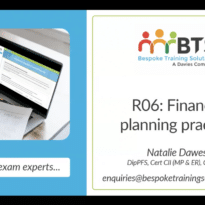With the Budget a week away, HMRC figures show that gross tax and NIC receipts for April 2024 to September 2024 were £406.3 billion, which is £11.1 billion higher than the same period last year.
Inheritance tax receipts for April 2024 to September 2024 were £4.3 billion, which is £0.4 billion higher than the same period last year.
Income tax, capital gains tax and NICs receipts for April 2024 to September 2024 were £226.8 billion, which is £6.2 billion higher than the same period last year.
CGT receipts for the three months July to September this year were 16.3 per cent higher than the same period of 2024, possibly reflecting investors selling assets to pre-empt any changes to the tax rate in the upcoming Budget.
Despite this uplift in tax receipts for the Government, it is unlikely the Chancellor will change her tack on tax in the Budget, commentators say.
This is the view of Laura Hayward, Tax Partner at professional services and wealth management firm Evelyn Partners.
She said: “It is unlikely that this last update on monthly revenues will have any impact on the Chancellor’s plans for the Budget, which will be determined by fiscal projections and rules over the next five years. But rising tax receipts can tell their own story about what Rachel Reeves is considering for the Budget in order to raise an estimated £35billion, particularly in the case of inheritance tax, capital gains tax and income tax.”
Although the Chancellor has ruled out direct increases to Income Tax, Hayward highlights that from the tax receipt data, not just this month but over the years, it can be seen how fiscal drag increases income tax and NIC revenues as thresholds and allowances remain frozen and wages increase.
The Treasury could now be tempted to extend this “highly effective stealth tax,” she said, “which the Office for Budget Responsibility has said is the major driver behind the UK’s growing tax burden.
“Reports have suggested that the thresholds freeze could be extended from 2028 to 2030, which the Resolution Foundation says would give Rachel Reeves a huge boost in meeting fiscal rules by raising £7billion in 2029/30
“The Institute for Fiscal Studies has said that extending the freeze would pull 400,000 more people into paying the basic rate of income tax and another 600,000 into paying the higher and additional rates by 2029-30 as incomes increase.“
Lindsay James, investment strategist at Quilter Investors, reflected on the UK’s finances, pointing out that these “are stretched close to breaking point, as public sector net debt, excluding public sector banks, is estimated at 98.5% of GDP at the end of September 2024. This is an uptick of 4% compared to the same time last year. The last time such levels were seen was in the 1960s, when the Labour Chancellor of the day was ultimately forced into a policy of tax increases and spending reductions.
She added: “Although Rachel Reeves has promised that the UK will not see a return to austerity, a series of tax increases in one form or another are all but guaranteed at next week’s budget.
“The Chancellor has warned the UK public that there is a very large fiscal ‘black hole’ to be filled and has repeatedly indicated that difficult decisions will be necessary. The Labour government will want to avoid a repeat of the negative reactions from financial markets in recent years to unfunded tax cuts and spending plans, so the Chancellor will need to be transparent when announcing any changes and the anticipated costs.”
However, James pointed out that there were still some positives for the UK economy. “For the first time in more than three years inflation is now well below the Bank of England’s 2% target. The economy finally grew in August following two months of stagnation, and while higher interest rates have begun to take a toll on the labour market, there are still signs of progress. With all that considered, the Bank of England is expected to continue on its ‘slow and steady’ path with the potential for another 0.25% cut at its next monetary policy meeting, which could help to lift consumer confidence and provide a much needed boost to the economy.”































